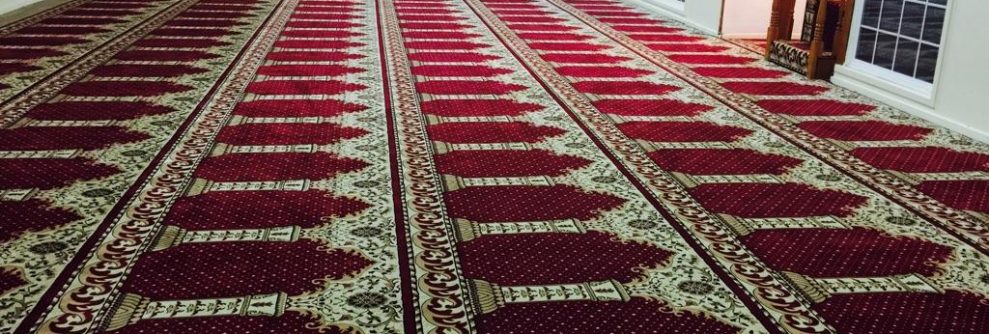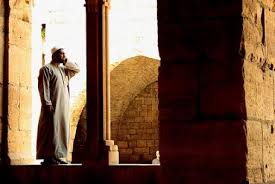What is considered a Shari’ Masjid?
What is considered a Shari’ Masjid?
Question:
Inshā Allah you are well and in the state of good health and īmān. The masjid committee was hoping for sharʿī clarification on some issues regarding the masjid. Any help would be greatly appreciated. I pray that Allah grants us all the ability to remain on the straight path, and that he accepts the huge khidmah of dīn that you are administering.
As a brief background, our community purchased a small church with few Muslim families residing in the town. As time went by and the community grew, the need for a larger premise to accommodate the growing community arose. From around 2003, it was difficult to pray jumuʿah in that masjid due to parking and space. Due to this, jumuʿah, ʿīd, and tarāwīḥ were prayed at the local community centre.
In 2018, with the grace of Allah, the duʿās and support of the community, and a huge effort by the management, a new purpose-built masjid was opened to the public with around 100 car parking spaces. This project was widely supported by the Council and even local non-Muslim residents. This new masjid is located close to a residential area, so we pray and hope that the Muslim population will continue to grow in the next 5-10 years and that this new masjid is ideal to accommodate the needs of the community.
Since the new masjid has been populated, this site which was in use as a masjid previously has been unoccupied and disused. Whether or not the building is even safe to use is under question. There is a possibility that to have it in use would mean demolishing the current structure and having a new one built in its place. Initially, there were various ideas put forward regarding this old site. Some had suggested to keep it running as a prayer hall due to its proximity to the city centre, whilst others had suggested that the site be sold to generate funds for the running of the new site. Currently, the running costs of both sites are met through the help of Allah, and by the generous donations of the local community.
I was hoping for some clarification on the following issues:
1) Is the building which was previously used as a masjid, classified as a sharʿī masjid? From the founding members, there are now only one or two who are still alive and residing in the area. Both myself and our chairman have had discussions with those that are still in the area. We have been unable to ascertain whether or not a formal intention of ‘classifying’ that building as a masjid was made at the time of purchase or once the Muslim community had started using the premises. However, since its initiation, the building was in regular use for the five daily ṣalāh. We were not performing jumuʿah, or ʿīd, or tarāwīh ṣalāh from approximately 2003 due to the aforementioned limitations. Iʿtikāf also used to be performed during the month of Ramaḍān.
2). If this building is to be classified as a sharʿī masjid, is there any possibility of rebuilding the masjid with some residential rooms above the ground floor. The long-term possibility if this is permitted, is to have some form of rental income to help with running costs and the residents of those rooms to perform their ṣalāh in the ṣalāh area.
3) If point two is not permissible, is there any feasibility from a sharʿī perspective, where that site can be ‘declassified’ as a sharʿī masjid. The reason I ask this, is because of the location of the site. The old masjid is situated in an extremely central location within the city. The surrounding area is dominated by offices, clubs and shops. Even if the site was to be redeveloped as a masjid, the possibility of five times regular ṣalāh and jumuʿah taking place there are minimal, both now or in the future. There is very little chance of residential development of any kind taking place in the area. With the university dominating that area of the city, the only residential development that may take place would be related to students.
Answer
بسم الله الرحمن الرحیم
1) How does a building become a masjid?
A building/location will be granted the status of a masjid when ṣalāh takes place without any restrictions of who can enter, or for how long ṣalāh will continue therein. Hence, a verbal statement is not required for a building/area to become a masjid; rather, the practice of people praying ṣalāh in congregation with adhān and iqāmah taking place for all five ṣalāh is, itself, indicative that this is a masjid. [1]
If, however, a clear statement was made at the beginning that ṣalāh will be prayed here for a limited time only, either by the donors or the council, then that building will not be subject to the rules of a masjid. [2]
2) Can rooms/shops be built on top of the masjid?
Once a building or area is designated as a masjid, then the area above the prayer area to the heavens is also considered a masjid and hence, is subject to the rules of a masjid.[3] As such, it is not permissible to build rooms or shops for purposes of revenue directly above the prayer area.
However, if a building has not yet been granted the status of a masjid, then it is permissible to build on top of the masjid provided that it is in the interest of the masjid.[4] This being said, it is imperative that giving out the accommodation on rent does not result in the sanctity of the masjid being violated.[5]
3) What can be done with the masjid if it is no longer in use?
There is a difference of opinion between Imām Abū Yūsuf and Imām Muḥammad in this issue. Imām Muḥammad is of the opinion that if a masjid is no longer in use, then the building will return to the original donors or then their inheritors. If the original donors or their inheritors cannot be located, then the building can be sold and the proceeds used for another masjid. However, Imām Abū Yūsuf is of the opinion that a masjid will always remain a masjid; hence, it cannot be sold or used for another purpose even if it is no longer in use. The majority of the Ḥanafī jurists have taken the opinion of Imām Abū Yūsuf. [6]
And Allah knows best
Ibrāhīm ibn Muḥammad
Leicester, UK
Endorsed by Muftī Ṭāhir Wādī
[1] قال السرخسي: وإن جعل أرضا له مسجدا لعامة المسلمين وبناها وأذن للناس بالصلاة فيها وأبانها من ملكه فأذن فيه المؤذن وصلى الناس جماعة صلاة واحدة، أو أكثر لم يكن له أن يرجع فيه، وإن مات لم يكن ميراثا) ؛ لأنه حرزها عن ملكه وجعلها خالصة لله تعالى قال الله تعالى: وأن المساجد لله. وقال – عليه الصلاة والسلام – من بنى لله مسجدا، ولو كمفحص قطاة بنى الله تعالى له بيتا في الجنة، ولا رجوع له فيما جعله لله تعالى خالصا كالصدقة التي أمضاها، ثم عند أبي يوسف يصير مسجدا إذا أبانه عن ملكه وأذن للناس بالصلاة فيه، وإن لم يصل فيه أحد كما في الوقف على مذهبه أن الوقف يتم بفعل الواقف من غير تسليم إلى المتولي، وعند محمد لا يصير مسجدا ما لم يصل الناس فيه بالجماعة، بنى على مذهبه أن الوقف لا يتم إلا بالتسليم إلى المتولي وعن أبي حنيفة فيه روايتان في رواية الحسن عنه يشترط إقامة الصلاة فيه بالجماعة، وفي رواية غيره عنه قال إذا صلى فيه واحد يصير مسجدا، وإن لم يصل بالجماعة (المبسوط: 12/35)
وقال أبو المعالي البخاري: إذا بنى مسجداً وأذن للناس بالصلاة فيه فصلى فيه جماعة، فإنه يصير مسجداً ويشترط مع ذلك أن تكون الصلاة بأذان وإقامة جهراً لا سراً (المحيط البرهاني: 6/205)
[2] قال أبو المعالي البخاري: وذكر الصدر الشهيد في واقعاته في باب العين من كتاب الهبة والصدقة رجل له أرض ساحة لا بناء فيها، أمر قوماً أن يصلوا فيها بجماعة، فهذا على ثلاثة أوجه: أما إن أمرهم بالصلاة فيها أبداً نصاً بأن قال: صلوا فيها أبداً أو أمرهم مطلقاً ونوي الأبد وفي هذين الوجهين صارت الساحة مسجداً لو مات لا يورث عنه، وأما إن وقت الأمر باليوم أو الشهر أو السنة وفي هذا الوجه لا تصير الساحة مسجداً لو مات تورث عنه (المحيط البرهاني: 6/206)
وقال ابن نجيم: لو كان له ساحة لا بناء فيها فأمر قومه أن يصلوا فيها بجماعة قالوا: إن أمرهم بالصلاة فيها أبدا أو أمرهم بالصلاة فيها بالجماعة ولم يذكر أبدا إلا أنه أراد بها الأبد ثم مات لا يكون ميراثا عنه وإن أمرهم بالصلاة شهرا أو سنة ثم مات تكون ميراثا عنه لأنه لا بد من التأبيد، والتوقيت ينافي التأبيد كذا في الخانية (البحر الرائق: 5/268)
وراجع إمداد الفتاوى: 6/128
[3] قال المرغيناني والعيني: (وتكره المجامعة فوق المسجد والبول والتخلي) ش: أي التغوط دون ما يقوله الناس أنه الخلوة بالمرأة، والمراد من الكراهة التحريم (لأن سطح المسجد له حكم المسجد) ش: لأنه ثابت في العرصة والهواء جميعا (البناية في شرح الهداية: 2/469)
[4] قال المرغيناني: قال: ومن جعل مسجدا تحته سرداب أو فوقه بيت وجعل باب المسجد إلى الطريق، وعزله عن ملكه فله أن يبيعه، وإن مات يورث عنه؛ لأنه لم يخلص لله تعالى لبقاء حق العبد متعلقا به، ولو كان السرداب لمصالح المسجد جاز كما في مسجد بيت المقدس. وروى الحسن عنه أنه قال: إذا جعل السفل مسجدا وعلى ظهره مسكن فهو مسجد؛ لأن المسجد مما يتأبد، وذلك يتحقق في السفل دون العلو. وعن محمد على عكس هذا؛ لأن المسجد معظم، وإذا كان فوقه مسكن أو مستغل يتعذر تعظيمه وعن أبي يوسف أنه جوز في الوجهين حين قدم بغداد ورأى ضيق المنازل فكأنه اعتبر الضرورة.
وعن محمد أنه حين دخل الري أجاز ذلك كله لما قلنا (الهداية: 6/235) وقال ابن الهمام: بخلاف ما إذا كان السرداب أو العلو موقوفا لصاحب المسجد، فإنه يجوز إذ لا ملك فيه لأحد بل هو من تتميم مصالح المسجد فهو كسرداب مسجد بيت المقدس هذا هو ظاهر المذهب (فتح القدير: 6/234)
وقال النسفي وابن نجيم: (قوله ومن جعل مسجدا تحته سرداب أو فوقه بيت وجعل بابه إلى الطريق وعزله أو اتخذ وسط داره مسجدا وأذن للناس بالدخول فله بيعه ويورث عنه) لأنه لم يخلص لله تعالى لبقاء حق العبد متعلقا به والسرداب بيت يتخذ تحت الأرض لغرض تبريد الماء وغيره كذا في فتح القدير وفي المصباح السرداب المكان الضيق يدخل فيه والجمع سراديب. اهـ.
وحاصله أن شرط كونه مسجدا أن يكون سفله وعلوه مسجدا لينقطع حق العبد عنه لقوله تعالى {وأن المساجد لله} بخلاف ما إذا كان السرداب أو العلو موقوفا لمصالح المسجد فإنه يجوز إذ لا ملك فيه لأحد بل هو من تتميم مصالح المسجد فهو كسرداب مسجد بيت المقدس هذا هو ظاهر المذهب وهناك روايات ضعيفة مذكورة في الهداية وبما ذكرناه علم أنه لو بنى بيتا على سطح المسجد لسكنى الإمام فإنه لا يضر في كونه مسجدا لأنه من المصالح. فإن قلت: لو جعل مسجدا ثم أراد أن يبني فوقه بيتا للإمام أو غيره هل له ذلك قلت: قال في التتارخانية إذا بنى مسجدا وبنى غرفة وهو في يده فله ذلك وإن كان حين بناه خلى بينه وبين الناس ثم جاء بعد ذلك يبني لا يتركه وفي جامع الفتوى إذا قال عنيت ذلك فإنه لا يصدق. اهـ. (البحر الرائق: 5/271)
وقال: وفي البزازية ولا يجوز للقيم أن يجعل شيئا من المسجد مستغلا ولا مسكنا (البحر الرائق: 5/271)
[5] قال أبو المعالي: قيم المسجد إذا أراد أن يبني حوانيت في المسجد وفي فنائه لا يجوز، أما المسجد: فلأنه إذا جعل مسكناً يسقط حرمة المسجد، أما الفناء: فلأنه يتبع المسجد (المحيط البرهاني: 6/215)
وراجع إمداد الفتاوى: 6/189
[6] قال أبو المعالي البخاري: في «المنتقى» : في مسجد يريد أهل المحلة أن يحولوه إلى موضع آخر، فإن ترك هذا حتى لا يصلى فيه، فللناس أن ينتفعوا به ويجعلون المسجد في غير هذا الموضع بمنزلة الخراب، وتأويل هذا إذا لم يعرف للمسجد بانٍ على ما نبينه إن شاء الله، فأما إذا لم يترك كما وصفت لك، فإنه لا يبيعونه ولا يتخذونه مسكناً، وهذه المسألة على هذا التفصيل إنما تتأتى على قول محمد، وفي «الأجناس» : إذا خرب المسجد ولا يعرف بانيه وبنى أهل المسجد مسجداً آخر ثم أجمعوا على بيعه واستعانوا بثمنه في ثمن المسجد الآخر فلا بأس به. قال أبو العباس الناطفي في «الأجناس» : فقياسه في وقف هذا المسجد أنه يجوز صرفه إلى عمارة مسجد آخر إذا لم يعرف الواقف ولا وارثه (المحيط البرهاني: 6/209)
وقال ابن نجيم: ولم يذكر المصنف حكم المسجد بعد خرابه، وقد اختلف فيه الشيخان، فقال محمد إذا خرب وليس له ما يعمر به وقد استغنى الناس عنه لبناء مسجد آخر أو لخراب القرية أو لم يخرب لكن خربت القرية بنقل أهلها واستغنوا عنه فإنه يعود إلى ملك الواقف أو ورثته. وقال أبو يوسف هو مسجد أبدا إلى قيام الساعة لا يعود ميراثا ولا يجوز نقله ونقل ماله إلى مسجد آخر سواء كانوا يصلون فيه أو لا وهو الفتوى كذا في الحاوي القدسي وفي المجتبى وأكثر المشايخ على قول أبي يوسف ورجح في فتح القدير قول أبي يوسف بأنه الأوجه (البحر الرائق: 5/272)
وفي الهندية: وإذا خرب المسجد واستغنى أهله وصار بحيث لا يصلى فيه عاد ملكا لواقفه أو لورثته حتى جاز لهم أن يبيعوه أو يبنوه دارا وقيل: هو مسجد أبدا وهو الأصح، كذا في خزانة المفتين، في فتاوى الحجة لو صار أحد المسجدين قديما وتداعى إلى الخراب فأراد أهل السكة بيع القديم وصرفه في المسجد الجديد فإنه لا يجوز، أما على قول أبي يوسف – رحمه الله تعالى – فلأن المسجد وإن خرب واستغنى عنه أهله لا يعود إلى ملك الباني، وأما على قول محمد – رحمه الله تعالى -: وإن عاد بعد الاستغناء ولكن إلى ملك الباني وورثته، فلا يكون لأهل المسجد على كلا القولين ولاية البيع والفتوى على قول أبي يوسف – رحمه الله تعالى – أنه لا يعود إلى ملك مالك أبدا، كذا في المضمرات (الفتاوى الهندية: 2/458)




